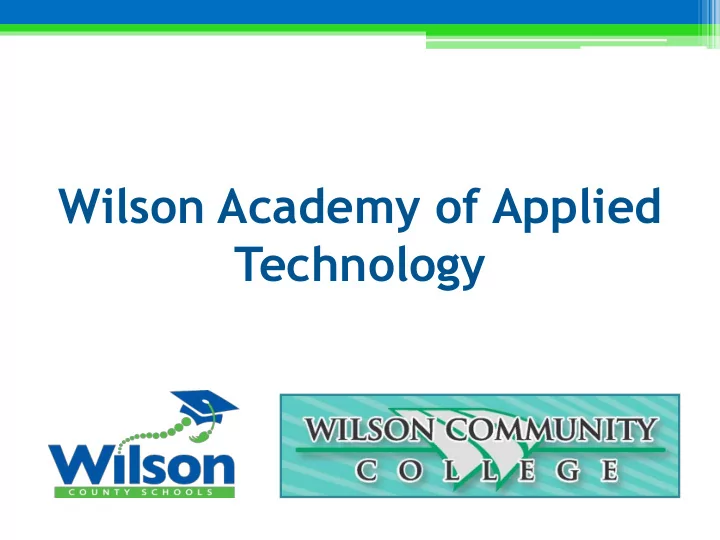

Wilson Academy of Applied Technology
The Hidden STEM Economy BROOKINGS INSTITUTE Jonathan Rothwell Half of all STEM jobs are available to workers without a four-year college degree, and these jobs pay $53,000 on average — a wage 10 percent higher than jobs with similar educational requirements. Half of all STEM jobs are in manufacturing, health care, or construction industries. Installation, maintenance, and repair occupations…
The Hidden STEM Economy BROOKINGS INSTITUTE Jonathan Rothwell Today, there are two STEM economies. The professional STEM economy of today is closely linked to graduate school education, maintains close links with research universities, but functions mostly in the corporate sector. It plays a vital function in keeping American businesses on the cutting edge of technological development and deployment.
The Hidden STEM Economy BROOKINGS INSTITUTE Jonathan Rothwell The second STEM economy draws from high schools, workshops, vocational schools, and community colleges. These workers today … are critical to the implementation of new ideas, and advise researchers on feasibility of design options, cost estimates, and other practical aspects of technological development. Skilled technicians produce, install, and repair the products and production machines…
The Solution Foundational Skills • Create an educational program that blends the teaching of Foundational, Core Technical, and Occupation-Related skills Core Exposure Technical and Experience Skills • Provide this education in an environment Workforce that simulates a modern manufacturing Ready Student plant o Good Manufacturing Practices (GMP) o Quality Control Management Simulated Occupation- Industry Related o Safety Requirements Skills Environment • Provide students with exposure to professional opportunities and experience in the occupation of their choice
Partnerships • Co-designed by: o Wilson County Schools o Wilson Community College o Wilson Economic Development Council o Wilson Industrial Management Council o Industry Leaders
Program Components Students will: • Complete a five year early college program • Earn high school diploma & Associates of Applied Science or Associates of Science Degree • Earn industry-recognized certifications • Partake in hands-on technical labs • Participate in practicum and internship experiences
Potential Pathways & Certifications • North Carolina Career • Applied Engineering Readiness Certification Technology • OSHA Certification • Automation Engineering • Six Sigma Certification Technology • ISO 9000 Certification • Mechatronics Engineering Technology • Mechanical Engineering Technology • College Transfer
Connecting Education to North Carolina Manufacturing • Relevant • Fills a Missing Niche • Dually Beneficial – students and industries • Replicable within the confines of any given economy • Scalable
Sean Bulson Superintendent of Schools Wilson County Schools Rusty Stephens President Wilson Community College
Recommend
More recommend